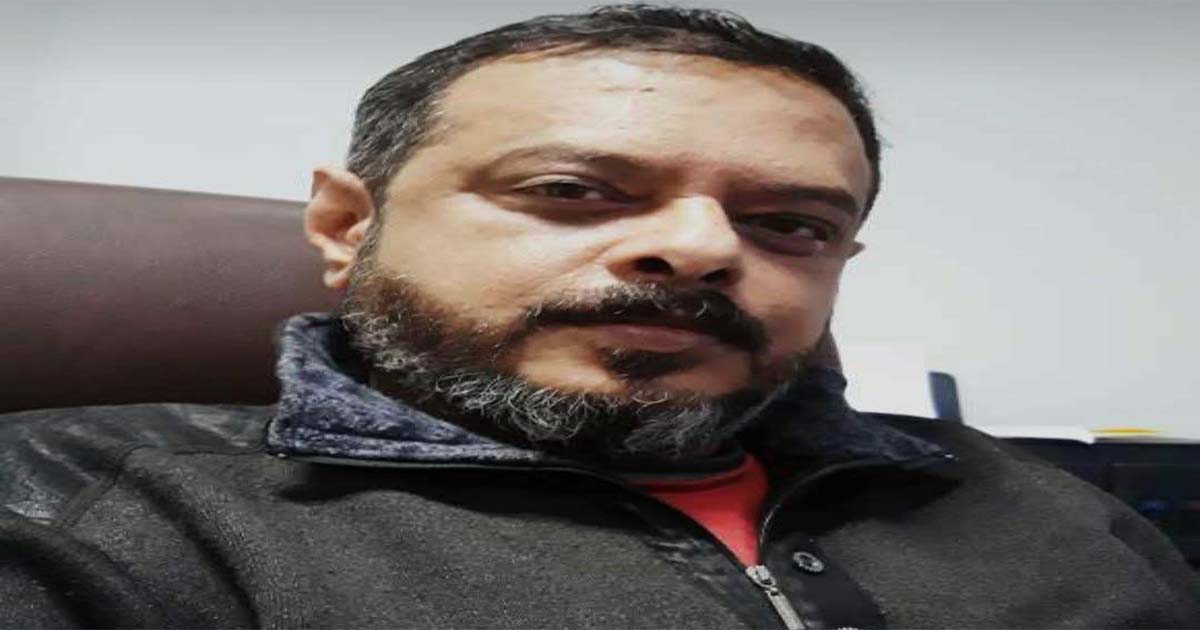General
Mumbai: BMC Keeps Aside Gargai Dam Project, Prefers Seawater Desalination

To address the annual water shortages and eliminate water cuts, the Brihanmumbai Municipal Corporation (BMC) has been exploring options for augmenting water resources. Two potential solutions emerged: desalination of seawater and the development of the Gargai water resources into a dam, supplying water to the Modak Sagar Lake.
Preventing Tree Cutting for Gargai Dam
The BMC’s study indicated that the construction of the Gargai dam would require the felling of approximately 2.5 lakh trees. With a focus on preserving the environment, the BMC has decided to prioritise the establishment of seawater desalination plants instead. The tendering process for the desalination project is expected to commence within the next two to three months.
“The study of BMC shows that around 2.5 lakh trees need to be cut to construct Gargai dam and we want to save those trees. Therefore, We have given first preference to the desalination of seawater plants. Tenders for the desalination project will be floated in the next two to three months
“On the other hand, a company has been selected for the construction of Gargai dam and a tender document is also being prepared. Thereafter, the permission of the state government will be taken and then work will begin. The estimated time of construction of Gargai dam is three years,” Additional Municipal Commissioner, (Project) P Velrasu said.
Progress on Gargai Dam Construction
Concurrently, the BMC has selected a company for the construction of the Gargai dam, and preparations for the tender document are underway. Once the state government grants permission, construction work on the Gargai dam is scheduled to begin. The estimated timeframe for completing the dam is three years.
Current Water Resources and Supply
To cater to the water needs of Mumbai, the city relies on seven dams: Upper Vaitarna, Modak Sagar, Tansa, Madhya Vaitarna, Bhatsa, Vihar, and Tulsi. These lakes collectively hold 14 lakh 47 million litres of water. The BMC supplies 3850 million litres of potable water daily, while the actual demand stands at 4200 million litres per day. The Hydraulic department of the BMC regularly assesses water stocks and formulates water management plans for the year.
Annual Water Cuts and Reserve Water Usage
During May and June, the BMC traditionally seeks permission from the state government to utilize reserve water stock from the Bhatsa and Upper Vaitarna lakes. Last year, all lake levels dipped by 11%, prompting the BMC to implement a 10% water cut in Mumbai. However, heavy rainfall in July led to the withdrawal of water cuts after 12 days. This year, the city is once again at risk of facing water cuts.
Maharashtra
Mumbai: Husband arrested for killing wife over excess salt in biryani

crime
Mumbai: A sensational case of wife murder has occurred in Mumbai. A man brutally murdered his wife in the Beganwadi area of Mumbai. Surprisingly, the motive behind this bloody altercation is being reported as simply “too much salt in the biryani.” Police acted promptly and arrested the murderous husband, Manzar Imam Hussain.
A Story of Old Enmity and Violence
The family of the deceased, Nazia Parveen, told police that this was not just a one-night stand. Nazia and Manzar had a love marriage two years ago, in October 2023, but soon after their marriage, Manzar’s behavior changed. He would often assault Nazia over trivial matters. About three months ago, Manzar reached the peak of his brutality, beating Nazia so severely that she broke a tooth. Daily domestic quarrels ultimately escalated into a tragic murder. Death from Salt in Biryani
According to police, on the night of the incident, December 20th, Nazia had cooked biryani at home. When Manzar sat down to eat, they began arguing about the biryani being too salty. The argument escalated to the point where Manzar became enraged and hit Nazia’s head against the wall. Nazia died on the spot from severe head injuries and excessive bleeding.
Accused in Police Custody
Upon learning of the incident, Shivaji Nagar police arrived at the scene, took possession of the body, and registered a murder case against the accused husband under the BNS section. Police arrested Manzar Imam Hussain, who was trying to escape. Police are currently interrogating the accused to piece together all aspects of this heinous crime.
Maharashtra
Kirit Somaiya and Nitesh Rane are only spreading hatred in the name of Hindu-Muslim relations, and creating suspicion is their agenda: Abu Asim Azmi

ABU ASIM AZMI
Mumbai: The BJP is engaging in politics of chaos and hatred in the name of Hindus and Muslims for votes. What wrong have Muslims done that Kirit Somaiya and Nitesh Rane are constantly spewing venom against them? They talk about brotherhood, but they have no constructive thinking or strategy to fight corruption. That’s why Hindus and Muslims continue to do the same thing day and night to benefit themselves and create divisions in society. By inciting hatred between Hindus and Muslims, they are creating an atmosphere of hatred in society. This serious allegation was made by Abu Asim Azmi, leader of the Maharashtra Samajwadi Party and member of the Workers’ Assembly. He said that when Khan became the mayor of Mumbai, where were the Muslims, but the BJP has started making it an issue and is trying to scare Hindus in the name of Muslims. Muslims say that someone from Mumbai should be elected mayor so that the city can develop, but an attempt has been made to create divisions in the name of the mayor. Based on a survey conducted a year ago, it is being said that Mumbai’s demographics are changing and the number of Bangladeshi infiltrators has increased. Azmi stated that the government needs to focus on where illegal Bangladeshis are coming from, what the government is doing, and why this infiltration is occurring. However, the way Muslims are being harassed in the name of Bangladeshis is wrong. He stated that radical Muslim leaders are advising Hindus to increase their population. Regarding Navneet Rane’s comment, Abu Asim Azmi said, “Who stopped her from having forty children? But she shouldn’t create suspicion in the name of Hindus and Muslims. This is very harmful. There is a political agenda to create hatred against Muslims. Ahead of the BMC elections, Soumya and Nitesh Rane have become agitated and are spewing venom against Muslims. This should be banned.”
Mumbai Press Exclusive News
Senior Journalist Sayedain Zaidi Passes Away, Media Fraternity Mourns His Loss

Senior journalist Sayedain Zaidi passed away on Tuesday morning in Lucknow, leaving the media fraternity in deep sorrow. He was unwell for a prolonged period and breathed his last earlier in the day. His demise marks the loss of a seasoned journalist who dedicated his life to responsible, balanced, and ethical journalism.
Sayedain Zaidi was associated with journalism for several decades and had worked with many prominent television channels and digital news platforms. During his distinguished career, he rendered his services to well-known media organizations such as India TV, Sahara Samay, BBC, Discovery Channel, Jansandesh, Lemon TV, and News Bean. His vast experience across national and international platforms earned him respect among colleagues and viewers alike.
At the time of his passing, Mr. Zaidi was working as the Managing Editor of Mumbai Press, where he played a key role in strengthening editorial standards and guiding young journalists. Known for his calm leadership and deep understanding of news ethics, he was admired for his commitment to truth and fairness in reporting.
Mr. Zaidi began his journey in journalism at the grassroots level and gradually rose to hold senior editorial positions. His reporting and editorial work covered a wide range of subjects, including social issues, politics, and public interest matters. He was known for presenting complex issues in a clear and responsible manner.
Following the news of his death, journalists, editors, and well-wishers expressed profound grief and paid tribute to his contributions. Many remembered him as a humble, soft-spoken, and principled individual who always encouraged ethical journalism and professional integrity.
The passing of Sayedain Zaidi is an irreparable loss to the media industry. His work, values, and legacy will continue to inspire future generations of journalists. He will be remembered not only as a senior journalist but also as a mentor and a compassionate human being.
-

 Crime3 years ago
Crime3 years agoClass 10 student jumps to death in Jaipur
-

 Maharashtra1 year ago
Maharashtra1 year agoMumbai Local Train Update: Central Railway’s New Timetable Comes Into Effect; Check Full List Of Revised Timings & Stations
-

 Maharashtra1 year ago
Maharashtra1 year agoMumbai To Go Toll-Free Tonight! Maharashtra Govt Announces Complete Toll Waiver For Light Motor Vehicles At All 5 Entry Points Of City
-

 Maharashtra1 year ago
Maharashtra1 year agoFalse photo of Imtiaz Jaleel’s rally, exposing the fooling conspiracy
-

 National News1 year ago
National News1 year agoMinistry of Railways rolls out Special Drive 4.0 with focus on digitisation, cleanliness, inclusiveness and grievance redressal
-

 Maharashtra1 year ago
Maharashtra1 year agoMaharashtra Elections 2024: Mumbai Metro & BEST Services Extended Till Midnight On Voting Day
-

 National News1 year ago
National News1 year agoJ&K: 4 Jawans Killed, 28 Injured After Bus Carrying BSF Personnel For Poll Duty Falls Into Gorge In Budgam; Terrifying Visuals Surface
-

 Crime1 year ago
Crime1 year agoBaba Siddique Murder: Mumbai Police Unable To Get Lawrence Bishnoi Custody Due To Home Ministry Order, Says Report












